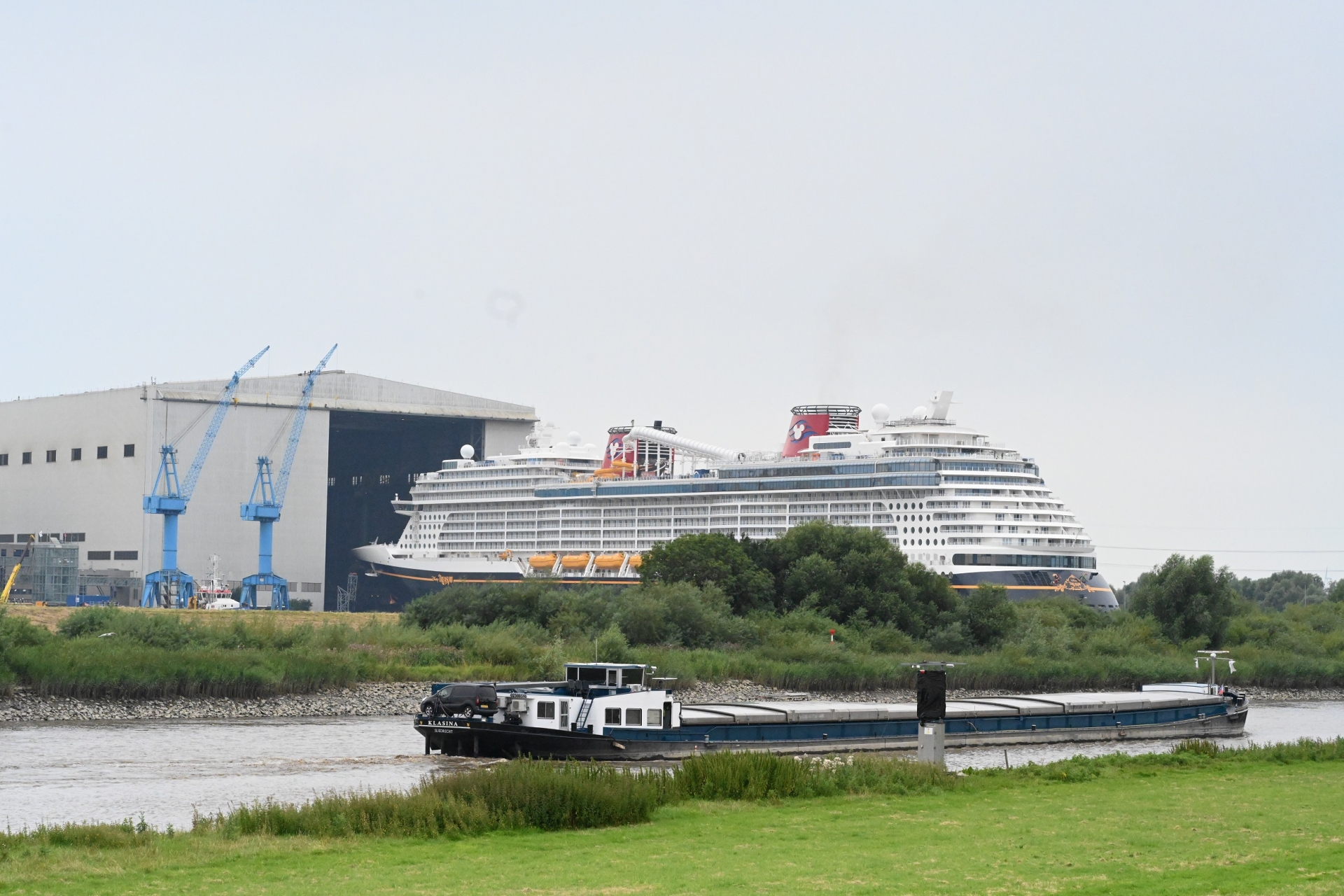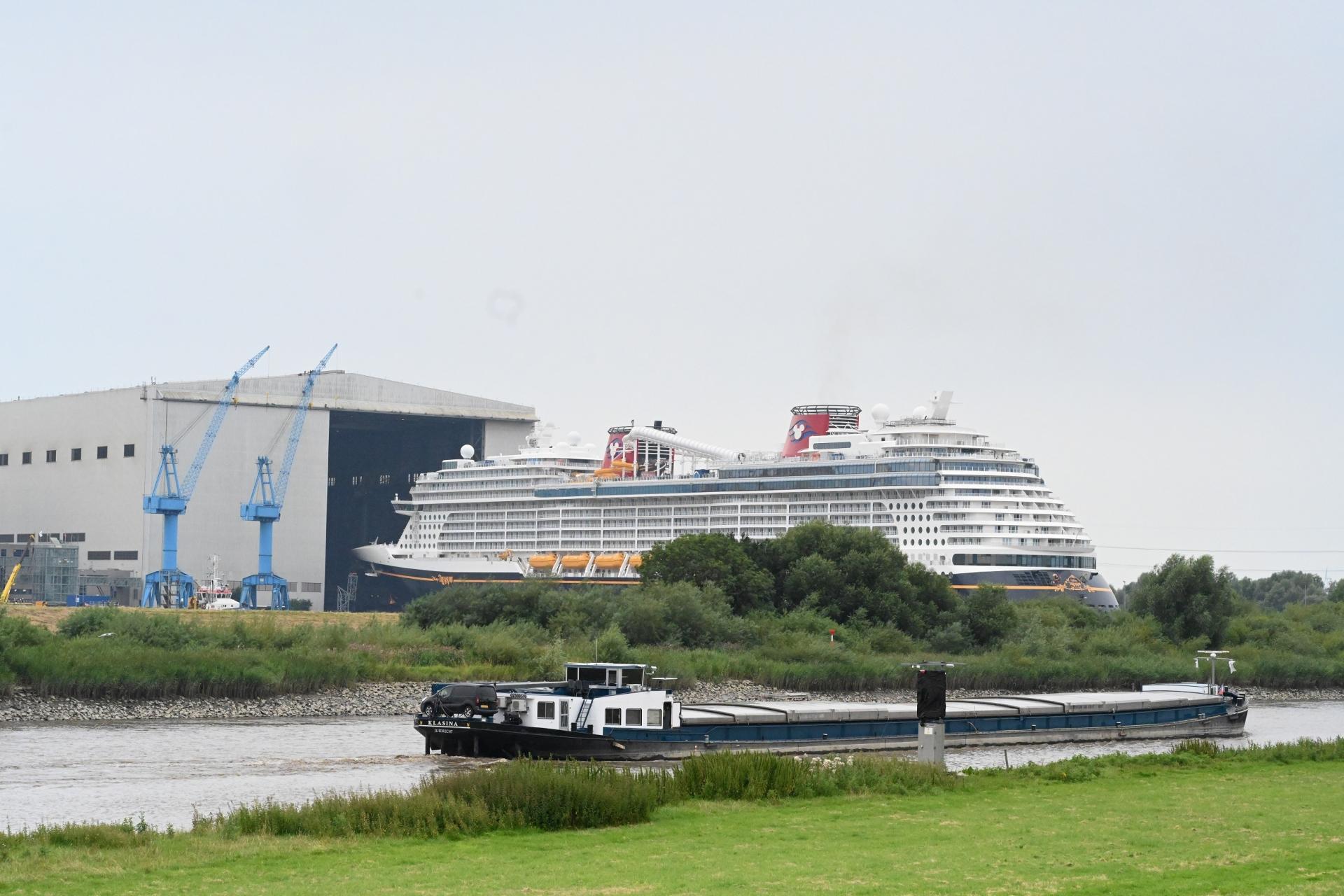
Germany to take 80% stake in struggling Meyer Werft shipyard. (picture alliance/dpa | Lars Penning)
The German government is set to take an 80% stake in the struggling Meyer Werft shipyard, which will help secure up to 20,000 jobs, authorities in the north-western state of Lower Saxony said on Wednesday.
The state's Economy Minister Olaf Lies said that Lower Saxony would partner with the federal government to help the shipyard, which has been plagued by financial troubles.
The €400 million ($445 million) takeover includes a state-backed guarantee of up to €1 billion to prevent the company from falling into insolvency.
The announcement comes one week after Chancellor Olaf Scholz promised government aid on a visit to the shipyard in the north-western city of Papenburg.
Speaking in the state capital Hanover, Lies said Germany's maritime industry must be preserved. "The state cannot be a bystander," he added.
However, the government is not aiming to remain the majority shareholder in the long term.
"We can very well imagine a successful future for the shipyard in private hands," he said, mentioning a buy-back option for the Meyer family.
The shipyard near the German North Sea coast, which is a major employer for the entire region, has faced serious financial difficulties due to rising costs and difficulties in securing bank loans.
The company is well known internationally for building cruise ships, but a series of shipbuilding deals struck just before the coronavirus pandemic have turned into major money-losers for Meyer Werft.
The new deal is set to allow Meyer Werft to finance the cost of building additional cruise ships. In the industry, buyers generally only pay most of the cost of a ship when it is completed and delivered - with the company holding the tab for the financing till delivery.
The company is expected to need almost €2.8 billion in financing through 2027.

Notice: No person, organization and/or company shall disseminate or broadcast the above article on Xinhua Silk Road website without prior permission by Xinhua Silk Road.




 A single purchase
A single purchase









